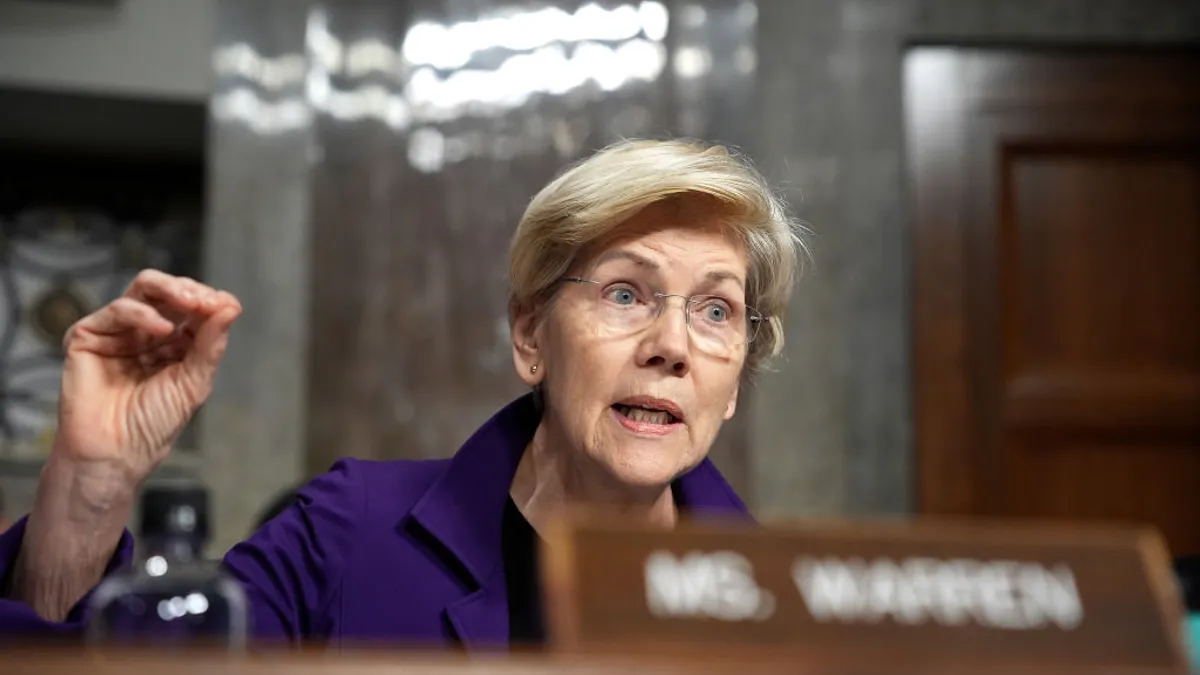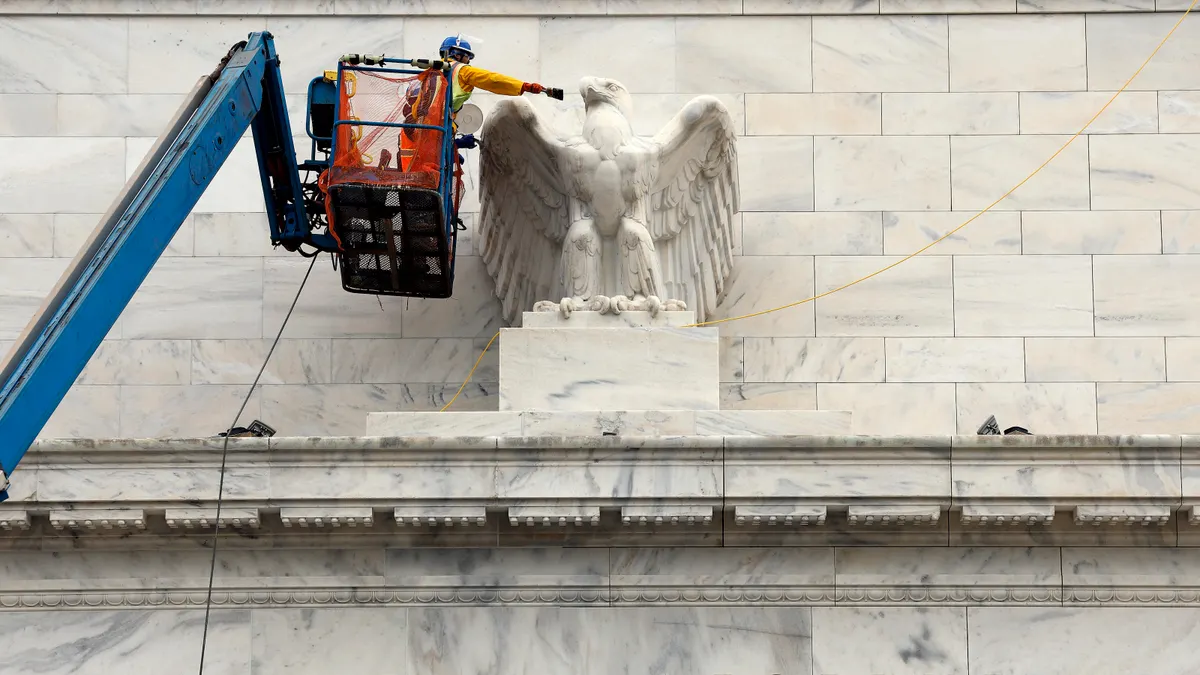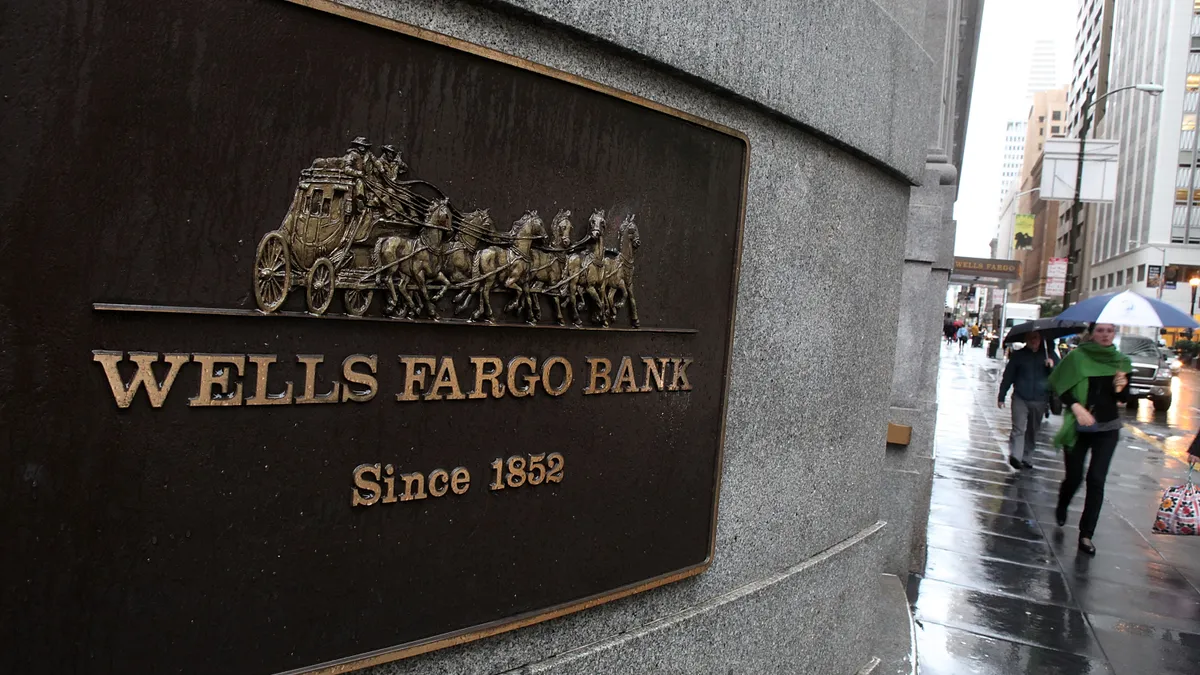The Senate confirmed Jonathan Gould to serve as comptroller of the currency, in a 50-45 vote Thursday.
Gould, who served as senior deputy comptroller and chief counsel at the Office of the Comptroller of the Currency from 2018 to 2021, will succeed Acting Comptroller Rodney Hood and become the OCC’s first permanent chief since now-Flagstar CEO Joseph Otting resigned in 2020. (Former President Joe Biden’s OCC chief Michael Hsu spent nearly four years in an acting capacity. Brian Brooks, the last OCC chief from President Donald Trump’s first term, was acting comptroller for roughly eight months.)
“Jonathan will continue the important work started by Acting Comptroller Hood to return the OCC to its true purpose of chartering and supervising banks to ensure a safe and sound banking system,” Senate Banking Committee Republicans said in a statement Thursday on X.
In Hood’s five months atop the OCC, the agency pledged to stop using reputational risk as a factor in bank examinations, rescinded Biden-era guidance on crypto, ended climate risk guidance for large banks and restructured a financial inclusion unit.
Gould, during his March confirmation hearing, pledged to “shine a spotlight” on de-banking activities — bolstering a Republican-led narrative that some banks have stopped serving certain conservative-leaning customers for unexplained reasons.
“I think it is unacceptable for banks or regulators to discriminate [against] customers on the basis of the customer's politics or religion, or the mere fact that they are engaged in a lawful activity that is for whatever reason, politically disfavored," Gould said.
All of the senators who voted to confirm Gould on Thursday were Republicans.
“Jonathan’s extensive background, including his firsthand experience at the OCC, means he’ll be ready to hit the ground running as Comptroller,” Sen. Mike Crapo, R-ID, said in a statement Thursday. “I am confident in his ability to carry out the agency’s critical mission to ensure the safety and soundness of our banking system, and to ensure banks provide fair access to financial services.”
Sen. Elizabeth Warren, D-MA, expressed concern during the March hearing that Gould “may pursue a Wall Street deregulatory agenda, block states from exercising their rights to protect their citizens from predatory practices by national banks, and let large banks off the hook when they violate the law.”
She also flagged Gould’s client load in his role at law firm Jones Day, where he has represented JPMorgan Chase, Goldman Sachs and the crypto firm Circle, according to ethics disclosures.
In a letter, Warren peppered Gould with more than 100 questions on bank regulation, supervision and enforcement; merger reviews; crypto assets; states’ rights; regulatory independence; and conflicts of interest.
“Given your record at the OCC, I fear a return to rubber stamping deals,” Warren wrote. At the time, she noted the probability that the application for Capital One’s acquisition of Discover “would be sitting on your desk.” The OCC approved that deal under Hood’s watch.
During his March hearing, Gould advocated for allowing banks “to engage in prudent risk-taking.”
“In the years since 2008, bank regulators have at times tried to eliminate rather than manage risk, frustrating the ability of banks to fulfill their function,” he told the Senate Banking Committee. “This blinkered approach to risk management has implications for the cost and availability of credit, the system’s ability to absorb shocks, and its adoption of new technologies and embrace of innovation.”
Gould said his top priorities would include “depoliticizing the banking system,” improving supervision, embracing innovation and ensuring banks support the economy.
“I will do everything in my power to ensure the continued relevance of our national banking system and its ability to support our national economy consistent with the President’s vision,” he told the committee.
Banking trade groups largely cheered Gould’s confirmation Thursday.
Rob Nichols, CEO of the American Bankers Association, said he “look[s] forward to working with Comptroller Gould on a number of important regulatory issues in the years ahead, including advancing a rational regulatory framework that promotes a resilient and healthy national banking system and upholding the OCC’s commitment to national bank preemption.”
Lindsey Johnson, CEO of the Consumer Bankers Association, said Gould’s “experience across both the public and private sectors gives him a well-rounded perspective and deep credibility at a time when a pragmatic approach to bank regulation is essential.”
Although it congratulated Gould on his confirmation, the Independent Community Bankers of America on Thursday urged the OCC to “consider the potential risks posed by granting national bank charters to nonbank digital asset firms, particularly for trust banks.”
In recent weeks, Circle, Ripple and Wise have all applied for national trust charters.
“ICBA’s principles for considering such applications are essential to striking the right balance between innovation and the need to protect both financial stability and consumers,” the trade group’s CEO, Rebeca Romero Rainey, said Thursday.
Gould’s confirmation still leaves the OCC a bit of outlier: It’s just the second financial regulator to get a permanent chief under the second Trump administration. (Paul Atkins was confirmed to lead the Securities and Exchange Commission in April.)
Brian Quintenz is awaiting confirmation to lead the Commodity Futures Trading Commission. The Federal Deposit Insurance Corp. and Consumer Financial Protection Bureau are being led by acting chiefs. And the Federal Reserve chair has been in place since Trump’s first term, though the Senate in June confirmed Michelle Bowman to serve as the central bank’s vice chair for supervision.
Trump tapped former FDIC board member Jonathan McKernan to lead the CFPB full time but later nominated him instead for undersecretary of domestic finance at the Treasury Department.





















